White-collar crime mum Victoria Schembri reveals what it’s really like inside women’s prison
SENTENCED to seven years jail for a white-collar crime, Sydney mum Victoria Schembri was bashed, threatened and harassed for sex — and that’s just the first day she was an inmate.
NSW
Don't miss out on the headlines from NSW. Followed categories will be added to My News.
SENTENCED to seven years jail for a white-collar crime, Sydney mum Victoria Schembri was bashed, threatened and sexually propositioned — and that was just the first day she was an inmate.
Mother-of-three Schembri, 38, was sent to Mulawa Prison (now Silverwater Women’s) in 2009 for tax fraud. She was charged with claiming more than $500,000 worth of bogus GST refunds between 2002 and 2003.
Her now ex-husband was named in court as a co-conspirator, but he was never charged. Their swimming pool company was in both of their names, but it was Schembri’s signature on the false GST claims.
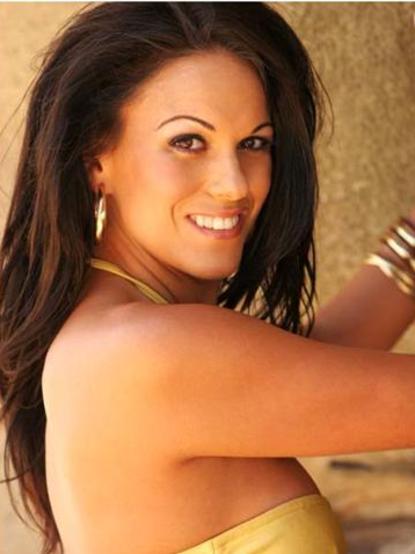
“It’s absolutely nothing like Orange Is the New Black (OITNB) or Wentworth. It’s about 100 times worse,” says Schembri.
“They couldn't possibly put on TV the things that go on inside women’s prison.
“I saw women having sheets thrown over the top of them and having their faces kicked in, to the point where they would end up in hospital requiring whole facial reconstructions.
“There were drugs hidden inside places that definitely they should not be in, and then torn out of those places by other inmates. Yeah, really gruesome stuff.”
Schembri says for somebody like her, a ‘normal mum with kids’, the horror of what she experienced is still difficult to forget.
“Even though now the nightmare is over, I am no longer there, the nightmares don’t stop. The things that you see, nobody should ever have to see, let alone witness or experience some of the things that happen inside womens jails.”
Schembri recalls what it was like walking through the prison gates for the first time, naive to what the other inmates would do to her.
“How to describe what it was like? How would you feel if you were surrounded by men and they started to play with your hair? Touching your skin? Stroking your cheek? Now imagine this is being done to you by women, covered in track marks, teeth missing, that have sores and scars all over their faces. It is completely surreal. I was literally sitting there, screaming inside my head thinking ‘you wouldn't possibly let a man do this to you, how can you let these women do this to you?’ But I was frozen, I was just numb.”
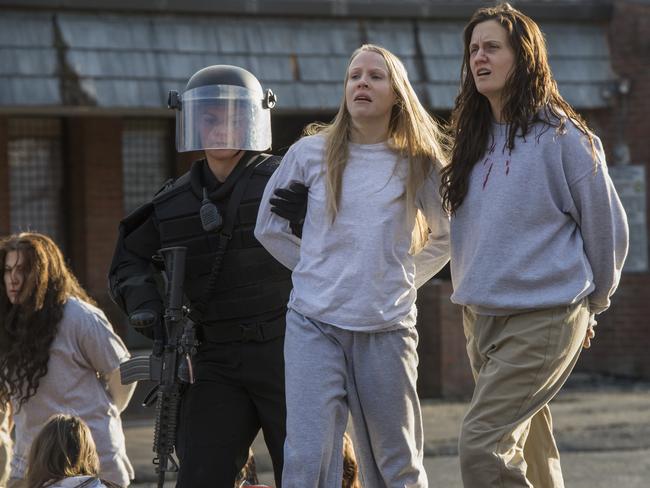
It wasn’t long before Schembri was sexually propositioned.
“I was offered protection in return for ‘favours’, which to my detriment I turned down. And there were many occasions where inmates would offer me sex for money.
I would do hair and makeup for the others and one day the girl I worked with said she needed to buy some pills and could she pay me in favours. I told her to keep her fists to herself!
“It was crazy. I walked in a few times to hear and see people doing things to each other that should be left behind closed doors.
Trying to rationalise what she witnessed, Schembri believes many female prisoners become sexual partners in jail initially for a human need to connect, but then it becomes all about survival.
“Absolutely, many people connect with other women for safety. There’s a saying that women come into prison straight and leave the gate lesbians. And their partners have absolutely no idea what goes on behind those closed walls.”
She’s quick to add that was never the case with her. Schembri says she didn’t have a sexual relationship with any of other female inmates.
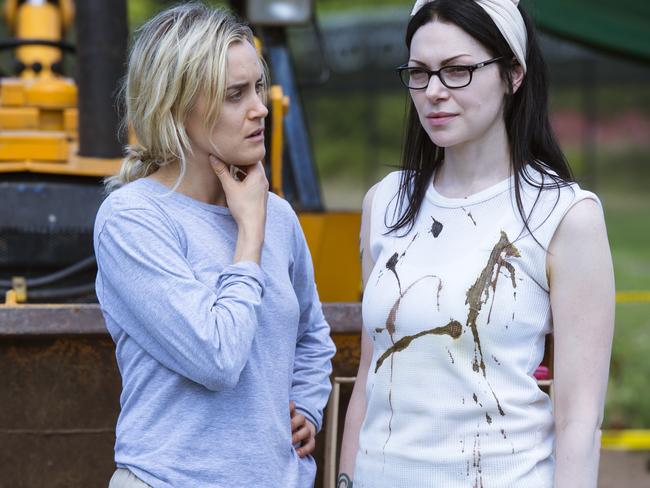
“That meant for me, there was no protection. Because of that, I did get bashed quite a few times. I’ll never forget being told by one of the other inmates that by the time I left jail that my pretty little face would have a big scar, motioning with her finger a knife running from my jaw to my ear. ‘From smile to ear’ she said to me.
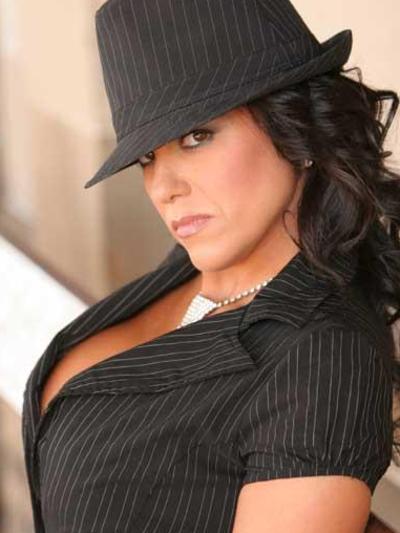
And it wasn’t an empty threat. Schembri was attacked so many times that she was classified high-risk of being critically injured.
“I had my nose broken, I had a table thrown at me, and this was in the first two months of being inside. I was bashed four times because I refused to name the perpetrator (of my crime). If you name the perp, you are literally dead, you cannot be a dog in jail.
I would have my cell ramped at two o’clock in the morning, other inmates would be yelling at me ‘Who did this to you? Are you going to speak up?’, and I kept refusing to say.
The next thing I knew I was being ‘shipped out’ of medium security and into maximum security at Emu Plains for my own safety.
But it was inside Emu Plains jail Schembri witnessed ‘pure evil’, locked up with NSW’s most violent inmates including Rebecca Butterfield.
“I could hear her running and smashing into the cell wall, trying to headbutt the wall. She split her head open and cracked her skull — everything was visible, like all the grey matter.
Butterfield brutally murdered a fellow inmate with a pair of industrial scissors. Prior to the attack, Butterfield was a relatively minor offender.
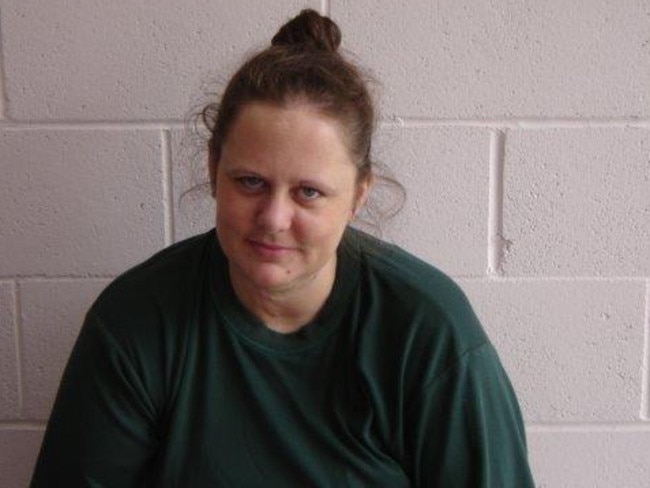
“What most people don’t realise is that a lot of women who do commit crime inside, one of the reasons is because they can get drugs inside. The jail community is actually a drugged society, they are all medicated. I would say that 97-99 per cent of every single inmate, whether they have used drugs or not, become medicated while they are in jail.
“But I was different, I didn’t want to be medicated. I even wrote to the Director of Nursing explaining that I was never medicated on the outside. I couldn’t believe they wanted to medicate me rather than send me to a social worker. I wasn’t a violent criminal, so there was no need for me to be subdued.”
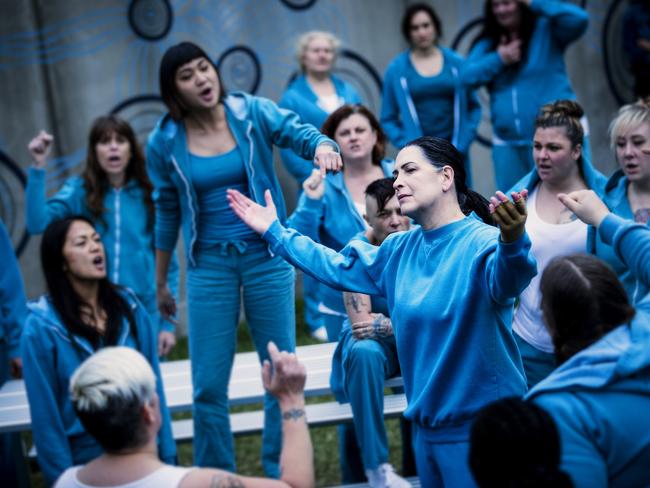
Schembri’s message to those who glorify and sensationalise women’s prisons is blunt.
“You’ve got no clue. I just roll my eyes at those people who watch Orange Is the New Black and Wentworth thinking that’s what it’s like in jail.
I read a Facebook post recently with someone praising prison life, ‘You get three square meals and a 10 by 10 room’, and I was like what do you mean? It’s more like three by six, and there’s two of you in that space, with a toilet that faces your bed, there’s no curtains, and there are correctional officers who should be behind those bars with the inmates let me tell you, they are scum.”
Schembri says she prayed to get through every single day of her incarceration and it has taken her four long years to get her life back to some kind of normality.
“I get by not letting other people define me by what I have gone through. The only person who can define you is yourself.”
Originally published as White-collar crime mum Victoria Schembri reveals what it’s really like inside women’s prison



